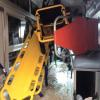Sign in to follow this
Followers
0

Tactical Medics... LEO's/ Not?
Started by
traumajunky,
-
Recently Browsing 0 members
No registered users viewing this page.

Started by
traumajunky,
No registered users viewing this page.